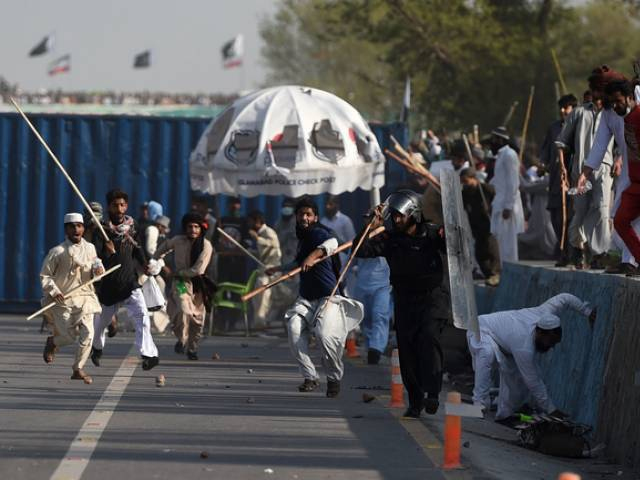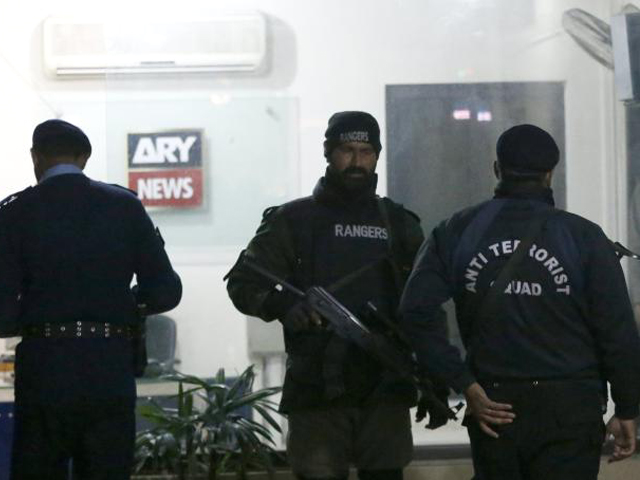
Hunger in South Asia, and other man-made fiascos
Our politicians should have investigated how to feed millions of people instead of investing in how to blow them up
We will build a bomb, even if we have to start eating grass to do it. When ZAB used these inspirational words to encourage the people of Pakistan to make sacrifices for the security of the nation, he probably didn’t know that the day would come when eating grass is an upgrade for many.
The world’s population went past 7 billion last week, and the growth rate doesn’t show signs of stagnating any time soon. Amid this, the problem of world hunger continues to get more pronounced. According to the World Food Program (WFP), one in seven people around the world go to bed hungry. That’s almost one billion people who are at risk of serious health problems (death being the most obvious) because of a completely avoidable situation.
For a relative picture, the WFP says that hunger kills more people than AIDS, malaria and tuberculosis combined. One in four children in developing countries are underweight, while undernutrition is a contributing cause of death in five million children under the age of five each year. Iodine and iron deficiencies can lead to mental retardation and brain damage. They are easily avoidable, yet almost two billion people suffer from each of them.
Around 98% of the people that live in a perpetual state of hunger live in the Third World. In Pakistan, the WFP estimated that around 82 million people, almost half the population, are food insecure, figures backed up by the Islamabad-Based Sustainable Policy Development Institute. Around 38% of deaths of children under five are linked to undernutrition.
The International Food Policy Research Institute estimates that 26% of the population is undernourished, while 26% of children are underweight. Pakistan ranks 59th on their Global Hunger Index, out of 81 countries surveyed. Even more worrying is that the situation in South Asia is now believed to be worse than sub-Saharan Africa. In the region, Pakistan’s poor showing is actually better than India or Bangladesh, which are ranked 67th and 70th respectively.
In short, the three most populous countries in the region can’t even feed their own people, and probably won’t be able to until massive reforms in economic priorities and population planning are made. Reforms like these take time to make a difference. If they had sincerely started investing in how to feed millions of people 30 years back, instead of investing in how to blow them up, maybe things would be different.
Food policy isn’t the only problem. The bigger one is one perpetuated upon the poor by the literate and semi-literate. Namely, that big families are a good thing. Now, having a lot of kids is fine if you have the means to feed, clothe and educate them properly. A billionaire with half-a-dozen kids probably won’t be too worried about how to manage his expenses.
But what about poor farm workers and domestic help? How will they pay for half-a-dozen kids, their own parents, and possibly their unemployed siblings, on a salary that can barely feed and shelter a couple of people? Socially educating them would work, if only society took the time to do so.
A few years back, I was with a parliamentarian in his rural constituency. The father-of-three congratulated a poor man who had recently had his fifth child, and told him he was earning God’s blessings by producing more Muslims. Later, he repeated the same sentiment in a public meeting. It would be easy to blame illiterate clerics for the problem, but this was no illiterate cleric. This was a foreign-educated (and generally liberal-minded) man, saying whatever he needed to get reelected. In one sweeping move, population policy took a back seat to personal desire. What chance do the poor have when their only two trusted sources send them the same message?
Bringing food supply and prices under control will not be easy, but it will be a lot easier than keeping population growth in check. A one-child policy is not an option, as it is a human rights violation. A more feasible approach would be two-prong. One of my professors in university used to joke about how population growth rates in the west went down once electricity, and later, TV and other forms of home-entertainment became commonplace. Alternative forms of ‘entertainment’ can only reduce population growth. Sadly, even this would require something near impossible, namely uninterrupted power supply.
So how about the easier option? Why not let people rich or poor entertain themselves the same old way? Why not just make access to population planning ‘equipment’ easier?
Again, the problems are not one person’s to solve. They need a concentrated societal shift. But in the meantime, here’s some advice I’m sure most readers can follow:
"If you can’t feed a hundred people, then feed just one - Mother Teresa.




COMMENTS (9)
Comments are moderated and generally will be posted if they are on-topic and not abusive.
For more information, please see our Comments FAQ